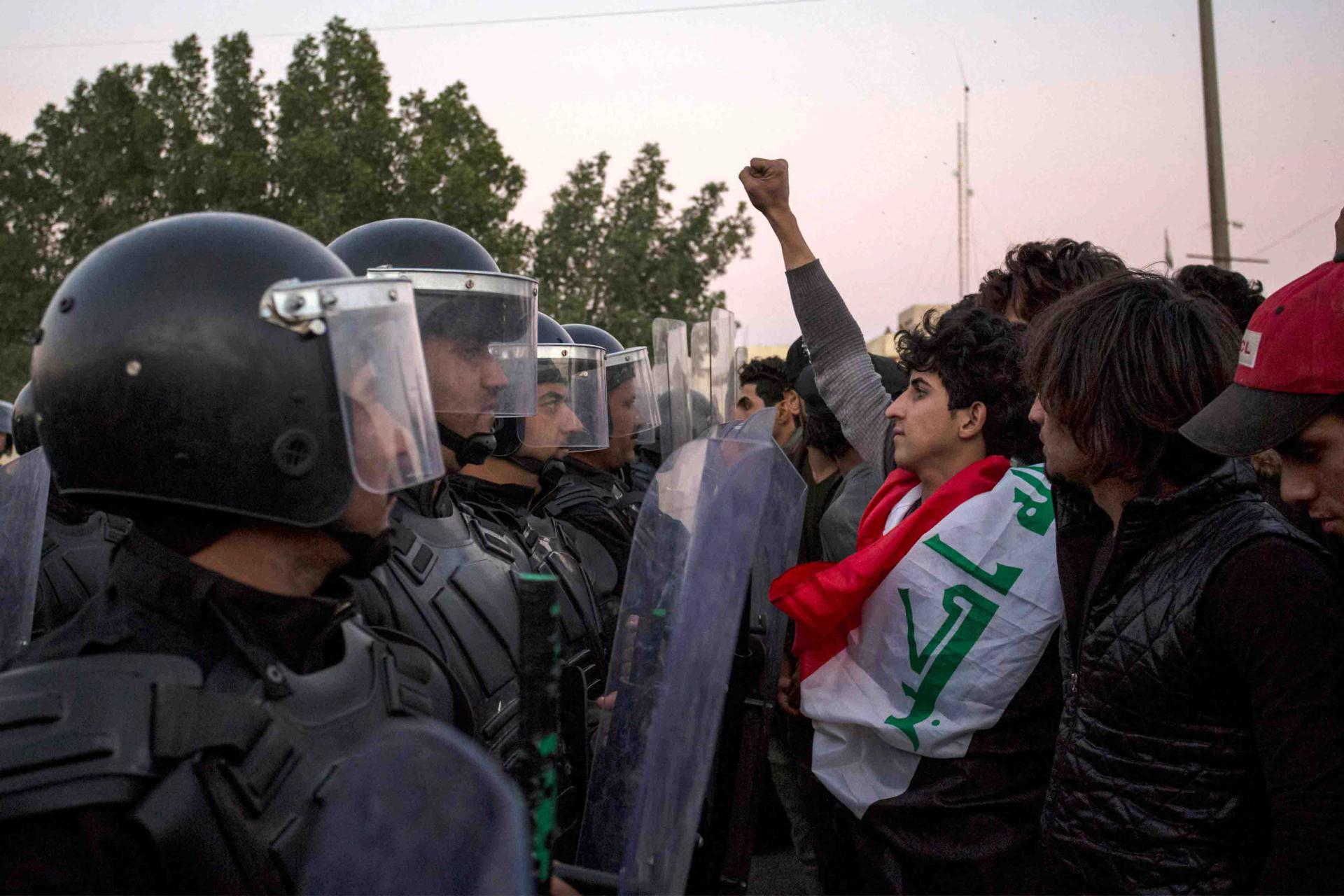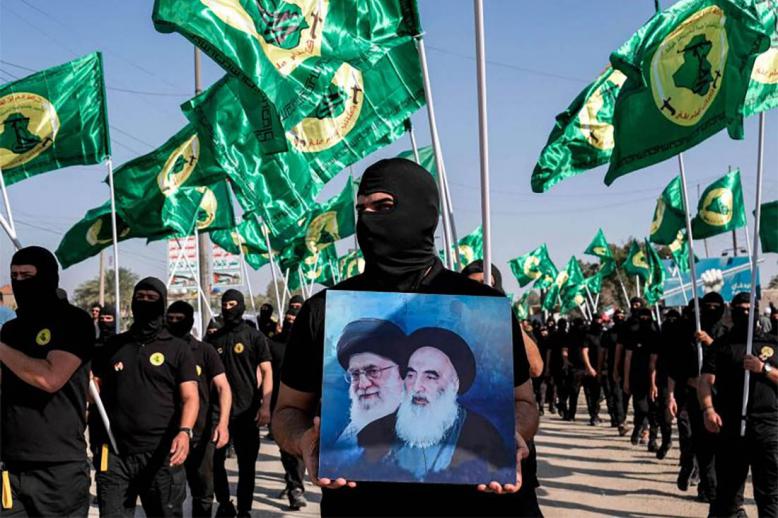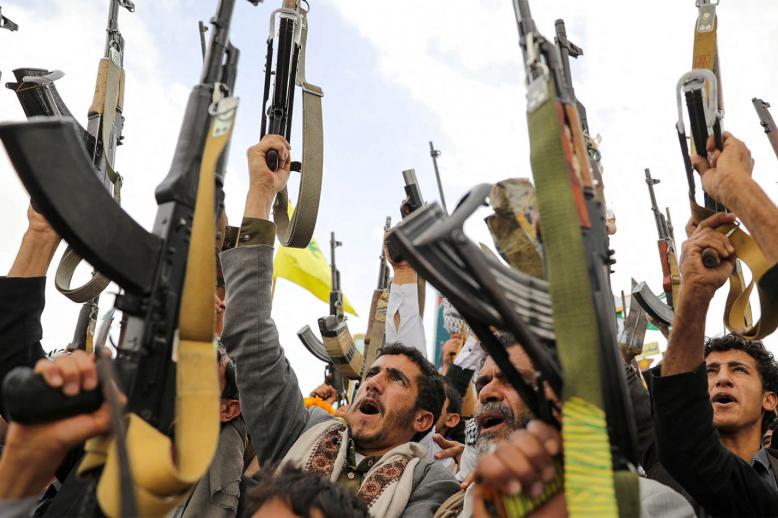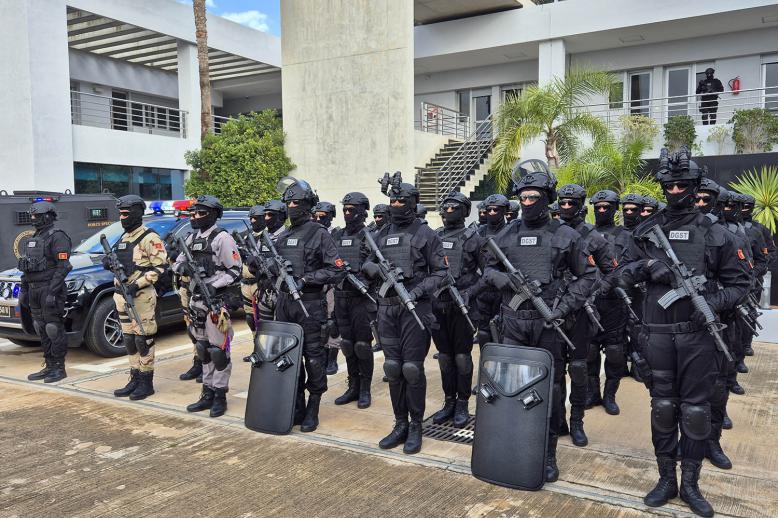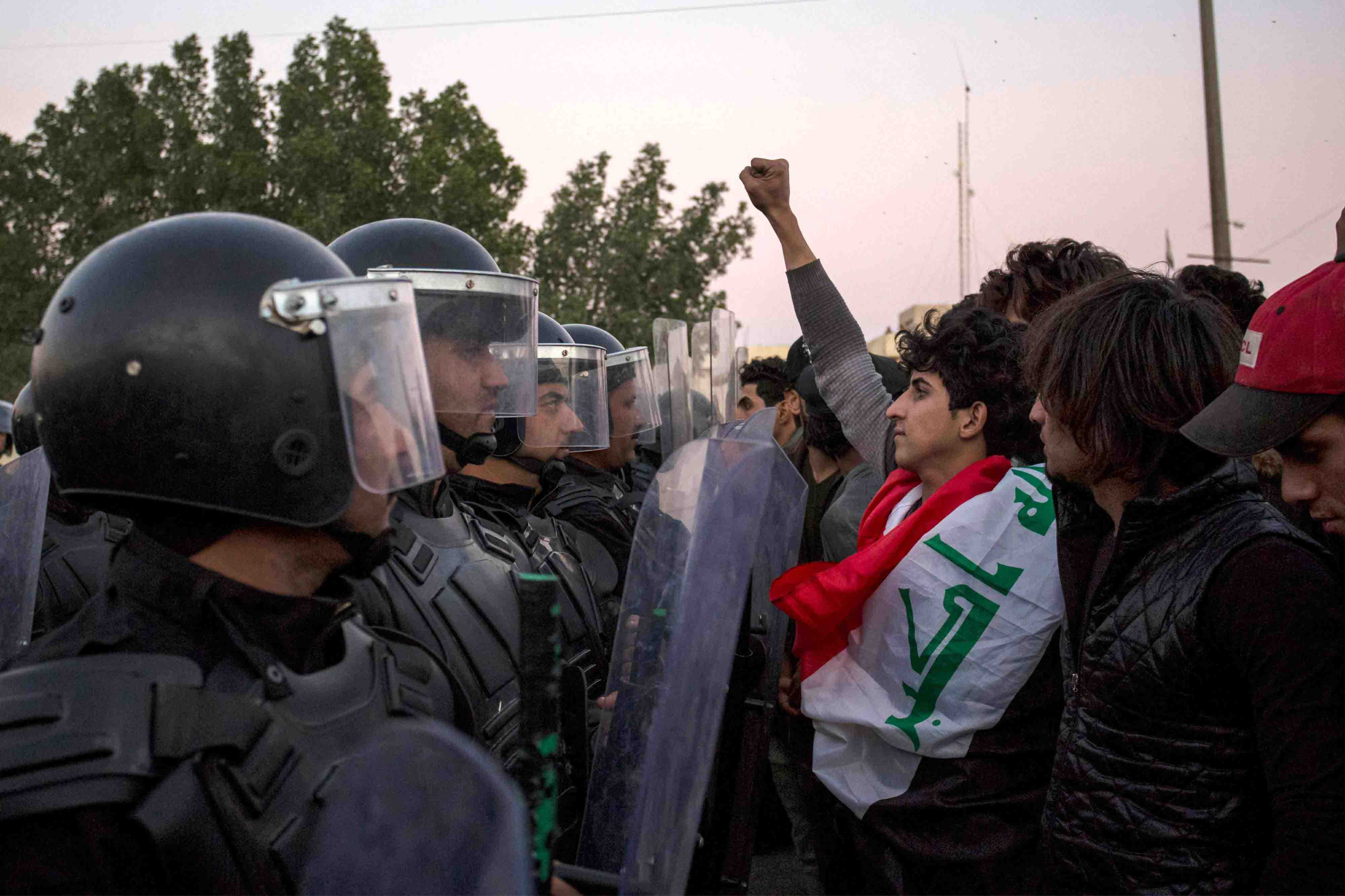Why do people in resource-rich Iraq protest?
There appears to be little agreement among spectators over the motives and demands driving Iraq’s protest movement, which has grown in since late 2011. What isn’t in dispute is that protest activities are a permanent feature of the Iraqi political landscape and it seems that Iraq is not alone.
Resource-rich Algeria was gripped by similar trends after its population took to the streets in reaction to President Abdelaziz Bouteflika’s announced intention to run for a fifth term in upcoming elections.
The space for political dissent is widening in countries whose revenues rely on income generated through oil and gas.
Economic inequalities appear to plague both countries but Iraq, unlike Algeria, has emerged as a playground of regional and foreign powers during the past 15 years of perpetual warfare.
The struggle for liberty is an important detail both movements share, inside a context in which the ruling government has fallen out of step with the population. While Iraq has witnessed some of the largest protest upheavals in its modern history, the demonstrators’ ability to effect change have been curtailed, forestalled by endemic corruption and broken promises of reforms.
Similarly, Iraqis, like Algerians, are aware of their country’s abundance of natural resources but have been denied the right to collectively determine their country’s fate. Previous elections in these countries, as observer groups have noted, have not always stood up to the test of being “free and fair.”
Voter turnout during Iraq’s parliamentary election last May slid from 60% in 2014 to 44.5%. The decision to abstain from voting among Iraqis “is far more complex than the demands Algerians voiced,” security analyst Nadia Mohammed said. “Algerians have made their demands clear, demands that have drawn unanimous consensus… a new president and an end to corruption within the armed forces.” The Iraqi street appears more divided.
During what some refer to as the “Iraqi spring” that crystallised in 2012, protests at the centre spread to the periphery. Accompanying demands spoke to specific hardships that various segments of Iraq’s population were living under. The government’s preferential treatment of specific groups, or negligence of western provinces, has not divided communities but given rise to expressions of solidarity.
Calls to abolish Iraq’s sectarian quota system marked demands heard across the political and ethnic spectrum. In western provinces, more specific demands, including the release of female prisoners and an end to sectarian discrimination, were heard. Foreign meddling and the unfair distribution of the country’s oil wealth was another demand that transcended sectarian and political lines.
Freedom of speech and assembly in Iraq and Algeria has not been without adverse consequences. Iraqis have failed to weaken their state’s ability to exercise violence against unarmed civilians or prevent political factions, some of which hold parliamentary seats, from hijacking civilian-led movements.
In absence of leadership, Iraq’s protests have fallen prey to political co-optation. The Sadrist trend in Baghdad and the Islamic party in western cities have most famously — but not exclusively — sought accreditation for these movements.
By mobilising their own support base and inserting their members into the protest mix, these actors have deflected blame and evaded accountability for government misdeeds. Coverage often glosses over the fact that these actors are part and parcel of the ruling government.
The aim “is to keep pressure mounting and to expose the elite’s exploitation of a failing system,” said analyst Ahmed Mahmoud at the London-based Foreign Relations Bureau — Iraq. “Demonstrations will not stop. They may falter for a few weeks but as long as there is corruption, there will be protests.”
Nazli Tarzi is an independent journalist, whose writings and films focus on Iraq’s ancient history and contemporary political scene.
This article was originally published in The Arab Weekly.

